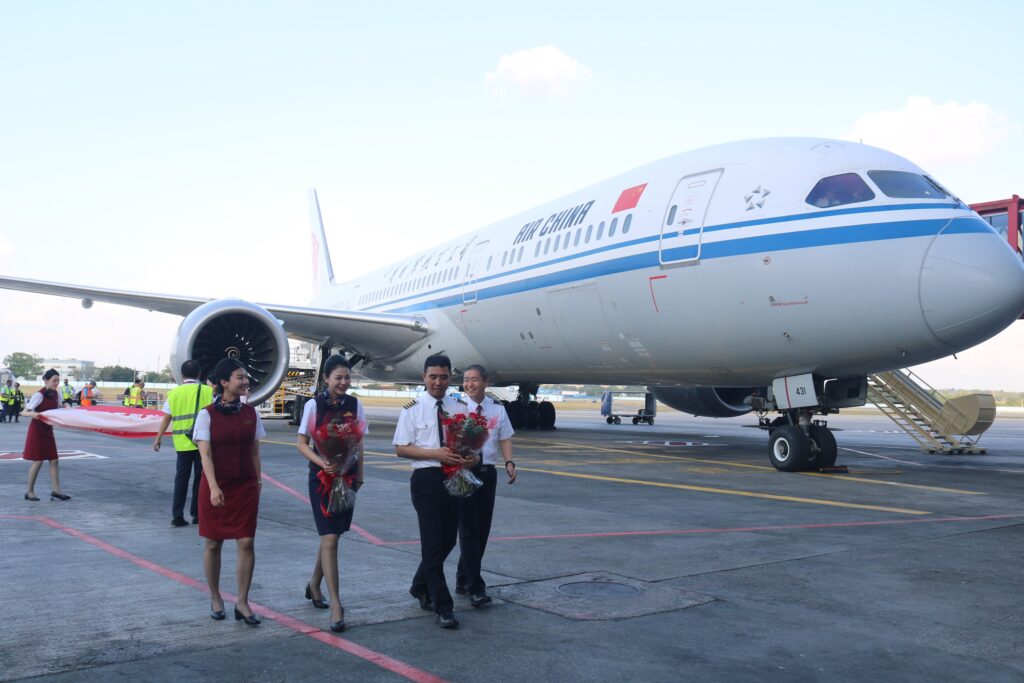Cuba in the sights of Chinese travelers
Tourism and culture strengthen relations between Cuba and China, sister nations
Posted by Ana Arzola, April 27, 2025

A direct flight between Beijing and Havana, visa exemption for Chinese citizens, a joint venture for the promotion of Cuba as a destination and many other initiatives are the driving force behind the will of the governments of the Caribbean country and China to make tourism between the two nations another of the economic sectors that will cement 65 years of bilateral relations of brotherhood.
“The cooperation between China and Cuba today stands out for being multisectoral and based on the deep friendship of our peoples, parties and governments, elements that have made it a model of solidarity among developing countries. Cuba has a strong interest in exploring cooperation projects with Chinese agencies and companies in the area of cultural tourism, with the aim of deepening people-to-people exchanges and promoting the culture of both countries among the population,” stated Elizabeth Vela, the Caribbean country’s Tourism counsellor in Beijing.
“China is a country with great potential for Cuba,” notes Tourism Minister Juan Carlos García Granda, in a press conference at the previous edition of FITCUBA, when the Asian giant was announced as the guest of honor at this event in 2025. This is confirmed by the data.
Up to the last month of 2024, some 26,760 Chinese travelers arrived in Cuba. The numbers show an increase of 48.6% compared to the same period of the previous year. In the first months of 2025, statistics also show an increase of over 20%, which places Cuba 12th on the table of outbound markets. However, the aspiration is to continue growing.
China is a country with great potential for Cuba
“With a peak of 50,000 Chinese visitors a year and an annual growth rate of 23% before the pandemic, China represents a major outbound market with substantial potential for international tourism to Cuba,” added Vela.
To that end, Cuban leisure industry authorities continue working to guarantee conditions and attractions as a safe and healthy destination for Chinese travelers and to obtain the Welcome Chinese Certification awarded by the Academy of Tourism of that country. Increased cooperation with government institutions in the sector, the identification of new travel agencies and tour operators relevant to the market, as well as contact with Chinese airlines and businesspeople, are among the initiatives to achieve this goal.

The counsellor also reported that connections are being promoted through charter flights, systematic communication is maintained with the China Eastern airline interested in operating to Cuba from Shanghai, and a project for the arrival of a Chinese cruise ship to Cuban ports is being evaluated.
In the case of technology and new communication platforms, essential to access the Chinese market, the binational joint venture China Cuba International Tourism Development Co., Ltd. launched an application on the WeChat network and Xiaohongshu, which promotes tourism in the archipelago and includes real-time functions that will facilitate the booking of hotels, tour packages and payments in RMB. This software application is integrated with several digital travel agencies and is funded by Tumei International Travel.
For Cuba it is an opportunity to expand and broaden ties
In the past year, representatives of the Cuban sector attended major tourism fairs in the provinces of Beijing, Shanghai, Guangzhou, Suzhou, Macao, Hong Kong and others. During the exchanges with travel agencies and tour operators, the interest to continue working together to increase the flow of tourists to the island was evident.
As part of these talks, the Cuban Ambassador to the eastern nation, Alberto Blanco, highlighted three fundamental pillars that strengthen tourism cooperation: the complementarity between two socialist countries without conflicts of interest, the stability and security that characterize Cuba, and the historical friendship that unites the Cuban people with China. The diplomat also referred to the possibility of Chinese companies managing hotels on the island, following successful models of other Asian nations.
“The Chinese government promotes the linking of culture and tourism in a single institution. For Cuba it is an opportunity to expand and broaden ties because in both sectors we have great potential. In 2003, Cuba was declared the first country in Latin America to be a ‘Chinese Tourist Destination,’ opening space and opportunities for Chinese visitors,” the counsellor added, who sees strengths in these singularities and in Cuba’s strategic geographic position to become a multi-destination option of reference in the Caribbean region from the other side of the world.


